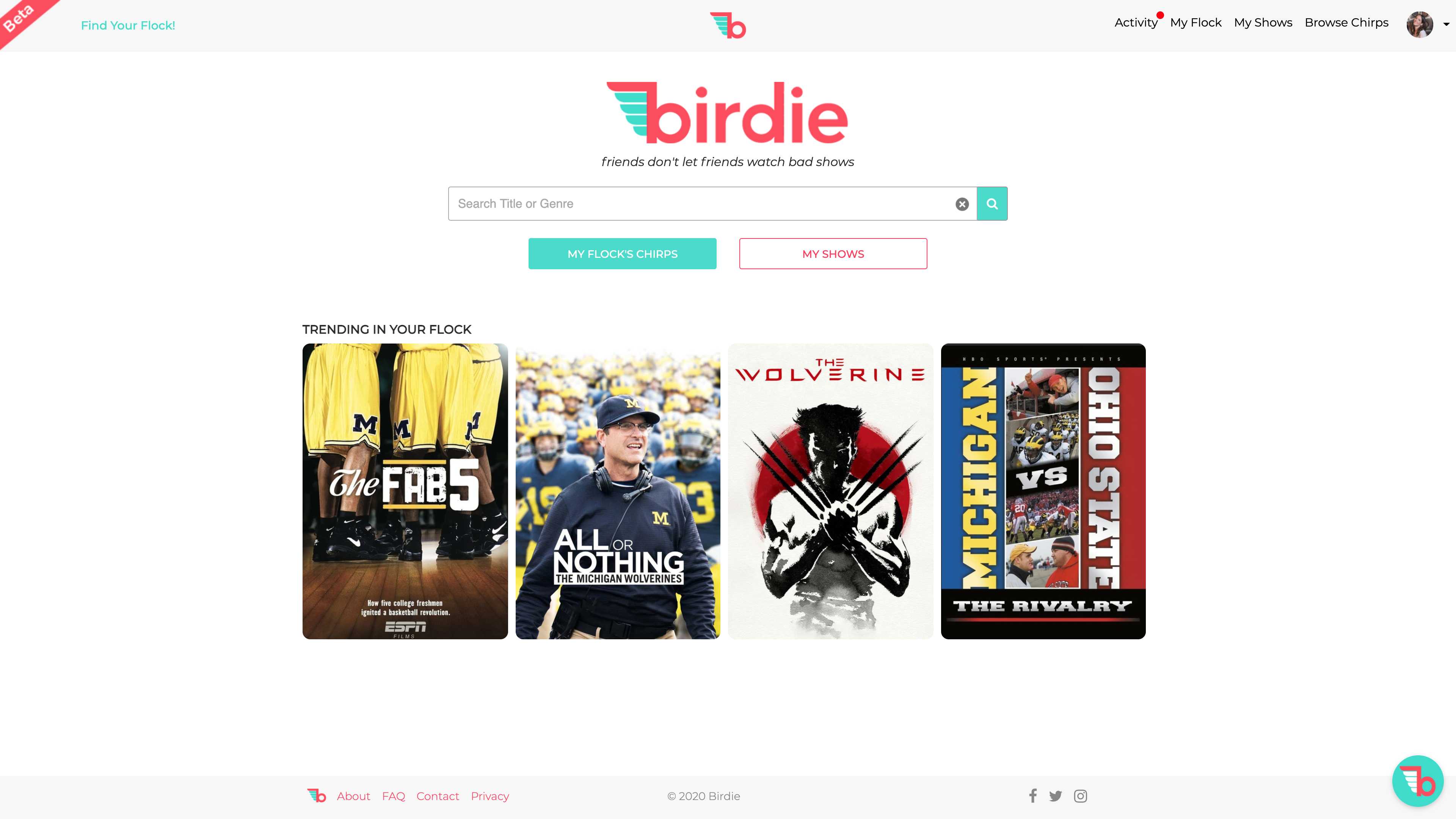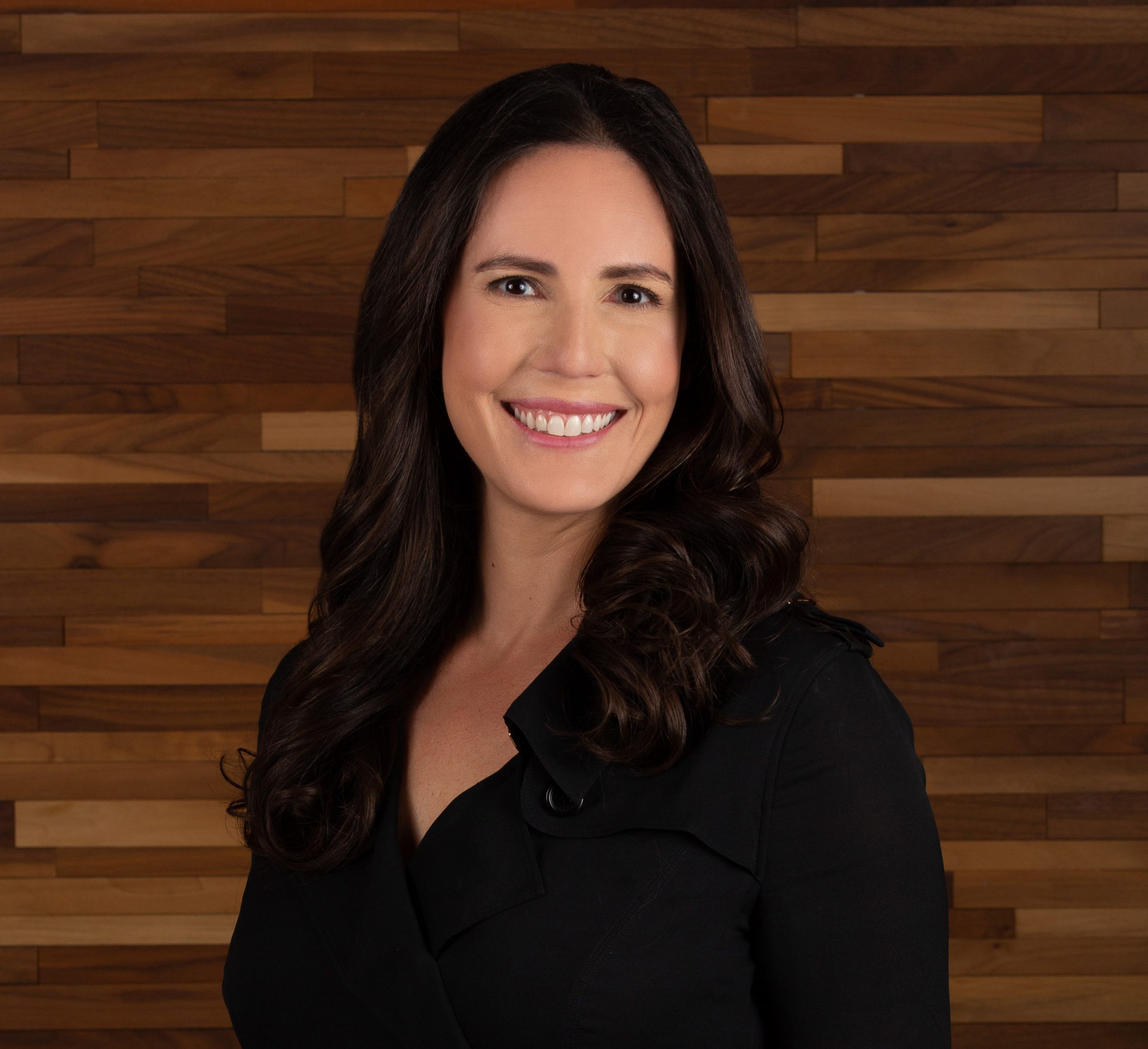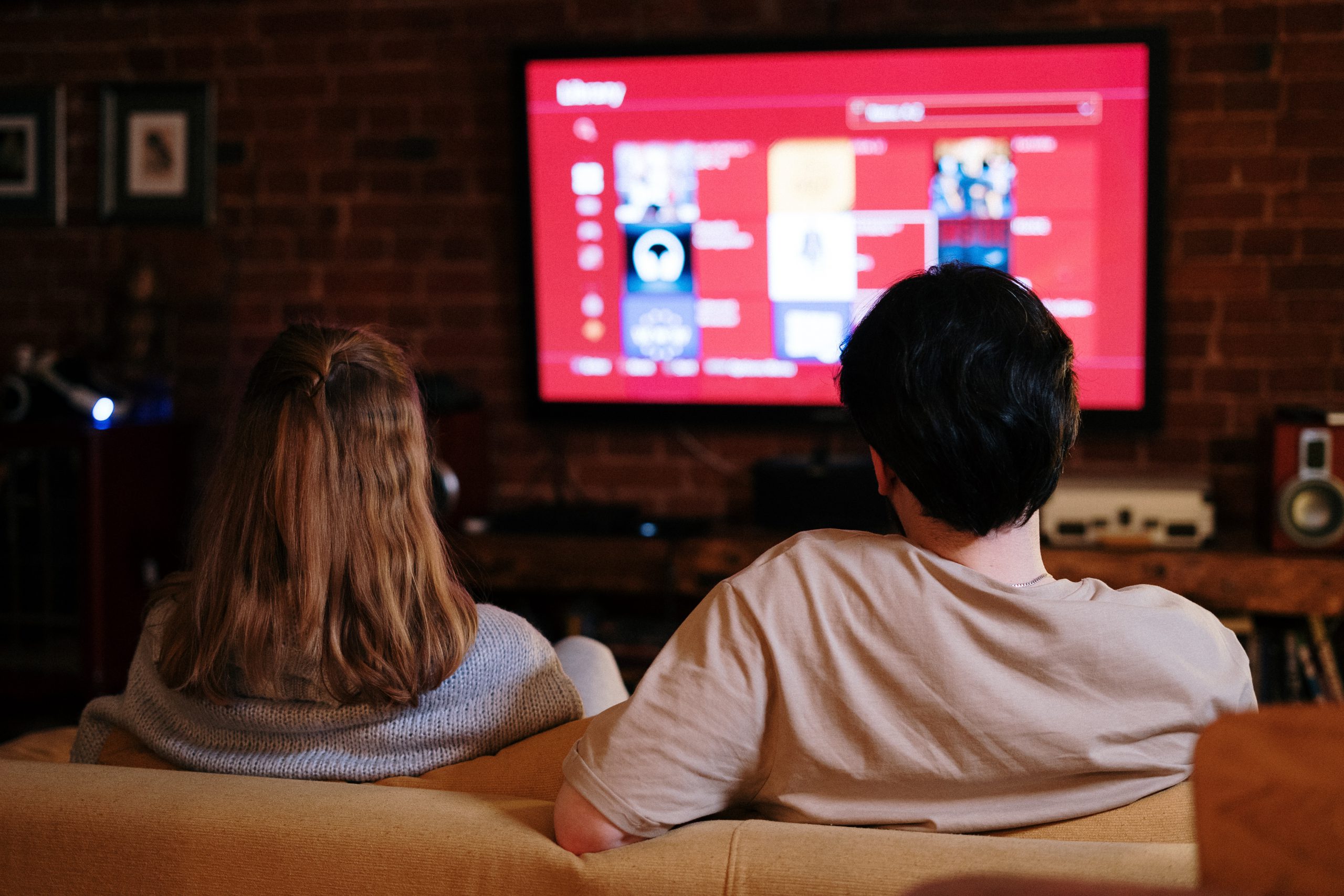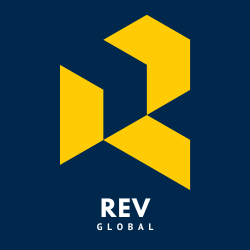

WHAT LED TO YOUR PIVOT?
FAILURE. LEARNING. I DRAMATICALLY UNDERESTIMATED A FEW THINGS.
I ASKED MYSELF, “WHAT WAS THE MISSION?” I WENT BACK TO THE CORE FOCUS AND MISSION OF WHAT BIRDIE WAS ABOUT.
Next in REV’s series on entrepreneurship, I sat down with Ross alum, Lauren Rosenthal. Lauren is a successful industrial process engineer turned entrepreneur. As founder CEO (Chief Chick) of Birdie, Lauren discussed turning an idea into a business, how to apply process to overcome setbacks, and identifying how and where to pivot.
Peter Pacult: Hi Lauren, thank you so much for joining me today as part of REV’s entrepreneurial blog series. For those who don’t know, what is Birdie?
Lauren Rosenthal: Birdie is an app that helps address the overwhelming nature of deciding what to watch. It uses the power of friend’s recommendations and is a simple way to save movie nights.
Instead of scrolling through Netflix or Amazon or Hulu and spending half your night trying to find something to watch, which is only made more difficult when you’re with somebody else, you use Birdie to use the power of friend’s recommendations, because friend’s recommendations are more powerful than an algorithm or a bunch of strangers and trolls.
Birdie also provides one singular place to keep your watch list instead of on each streaming service, so that you can make a really quick decision and get on with some well-deserved rest and relaxation.
I’m certainly familiar with having dinner go cold while we’re discussing what to watch. Beyond addressing a real unmet need, what was the deeper motivation that led you to start Birdie?
The deeper motivation goes back to my early University of Michigan days. I studied industrial operations engineering because I’m a process geek and I’m obsessed with efficiency. That is my mission in life.
What I find really rewarding and take a lot of pride in is streamlining and optimizing processes to save people time, personally or professionally.
Back to this example, sitting on your couch and going through Netflix for 45 minutes while your dinner is going cold is not a fun use of time! You’re not gaining anything in your life from those 45 minutes, and the same thing goes for a lot of other decisions in life.
So the deeper mission is to address the paradox of choice. We get more stressed and more overwhelmed with more optionality and that shouldn’t be the case and it doesn’t have to be.
Right. Paradox of choice comes from having so many options that you essentially have none. With your background in designing work processes to make something more efficient, how did you apply that skill to address paradox of choice?
With Birdie specifically, it’s tapping into the most powerful driver of any decision making. People much smarter than me have proven that, for as much value as there might be in random anonymized reviews, the most trusted, powerful, and likely driver to actually result in a quick, confident decision is through your personal trusted network.
That’s not even up for debate. It’s just really hard to harness that power. If you can, then that addresses the paradox of choice because you’re only looking at a few inputs versus the masses.
So, I started Birdie with restaurants and bars. I lived in New York. Everyone in New York has a lot of opinions on the best restaurants and if you Google “the best restaurants in New York” you’ll find thousands and thousands of blogs with all that information. But really when push comes to shove, you just want a couple people to give you a recommendation.
I refer to it often as a utility. The way that Birdie works is most similar to is KAYAK. You have certain parameters, you put those in, and you’re only going to have a couple of options.
Have you used that insight to differentiate Birdie?
I’m never going to beat Netflix on the algorithm game, and I don’t want to. I don’t think it’s proven the algorithm for Netflix is as valuable, or as strong of a driver, of what you will decide to watch as a personal recommendation.
On Birdie, you follow people. You’re not going to follow everyone on Birdie, maybe just five, ten people. Then you can only see their recommendations, or you can choose to see everybody. Like Instagram, you can curate your own view. Going back to the KAYAK example. If I put in, “all I care about is what the people I’m following have rated five stars on Netflix, comedy movie” I might really only have two or three options and hence the paradox of choice has been solved.
Birdie originally focused on restaurants. What led you to pivot? And how did you decide on movies?
Failure. Learning. I dramatically underestimated a few things. One was how difficult it is to get user generated content. In general, people just don’t like contributing. They like to have that one-on-one, so I struggled with the education aspect of getting people to add content and have it all in one place. I underestimated that.
And you layer on top of that: if people are going to go to the lengths of adding the user generated content, they also have to answer what’s in it for them. They need to have a positive experience; they need to benefit from the platform.
Another area I dramatically underestimated was the geography component. I lived in Tribeca in New York but I had friends who lived in different neighborhoods or outside of the city. Our everyday interactions were not the same. I was going to these bars and restaurants and they were going to whole different subsets. Our recommendations weren’t particularly valuable to one another. It’s important to ensure you’re meeting people where they’re at.
I always knew I wanted Birdie to be across many categories, but I needed to start with one. If I was going to continue working on Birdie, I had to take geography out of it, and it had to be something that was really topical. And so, I actually narrowed it down to TV and movies or podcasts. I did like podcasts a lot because it’s really hard to find good ones. People really like to humble brag about podcasts. People like to share because it makes them more highbrow and people don’t necessarily like to brag about binge watching 90 Day Fiancé. Although some people do because I use that example on people and they say, ‘I love 90 Day Fiancé. And I’m proud of it.’ Which they should be.
True. Something about podcasts turns your mom into a hipster. She’s so proud that she listened to a Swindled podcast.
Exactly! So, there was something interesting there, but ultimately just because of the streaming wars, I felt like there was more opportunity with TV and movies and there’s no geography component. It was ripe for it.
Back to your pivot, that’s a very honest self-assessment. For a lot of startups, it’s not usually the first idea that goes to market and becomes successful. It’s usually a reiteration process, just as you’ve described. How have you employed that innate process-driven mentality to overcome setbacks and failure to stay the course?
Birdie was never a foodie app. What was the mission? I went back to the core focus and mission of what Birdie was about. It’s not a foodie app. It’s a utility.
There’s all of the experiential components that I was failing on. That surprise and delight, making sure people were being rewarded for their input and their engagement. Which I’m still working on. It’s not perfect yet, but it really came down to a lot of what process engineering is. Peeling back all the layers of the sausage making and saying, ‘What are we trying to do here?” Sometimes a lot of things happen, but if you’re just trying to move from A to B, it doesn’t necessarily mean you have to streamline everything that’s happening.
What I was ultimately trying to do was save people time. So I went back to the drawing board. There was a matrix but it was that the geography component where I couldn’t actually deliver the value proposition. That’s one problem. Then, it was looking at where people spend time. You look at any census data and after sleeping and working, what do people spend the most time doing? Consuming entertainment content. It was really just getting from A to B and saving people time. And I think this is actually a better way of saving people time than food and drink was.
How do you like to confront those aspects of business where you are bumping up against a friction point? And how do you work through that?
I network a lot so I try to find people who are smarter than me. Where I excel is acknowledging where I do not have a strong skill set and then I bring in pinch hitters.
Starting a business is very hard work. That’s said so often it essentially becomes cliché. From your own experience though, what advice, or insight, would you give someone interested in starting a company?
Don’t. No, I’m just kidding! It’s one of those things where everyone tells you how hard it is. They say it’s hard because you’re not going to be making money. Or it’s stressful and difficult when changing the course of your career trajectory. True, that’s hard. That’s a risk. There’s a lot of things that rational people will tell you and it’s very obvious. I think what people don’t factor in is the emotional component of it, which has been very profound for me. It’s very isolating.
You feel like a failure 99% of the time. My background is process engineering. Somebody in my networking group had some process questions. I talked to her for an hour and she was so grateful. She’s like, “This is amazing” and was so complimentary and that’s the first time I felt like I exceeded expectations in a really long time. Because when you’re in a day job it’s very clear what your goals are. You get that validation. When it’s your company, you know that you’re only accountable to yourself. I’m a very confident person. I feel like I have some really valuable things to offer, but it’s pretty rare that I hear that. The isolation and the emotional tax that it takes can be pretty substantial.
In terms of this sort of emotional isolation, what advice can you give to overcome it?
I think it’s all the other things that you don’t think about or you don’t think are going to be as taxing. I would say that the pandemic will have been an interesting education for a lot of people. Even if you’re not working at a startup, you’re still working in your bedroom and you’re just in a very different set up with a different support system without water cooler talk. I think it has shone a light on that part of people’s lives.
But back to your question about what I would tell people. I would say, find what works for you and be proactive about it. I actually do prefer going to a coworking space, even if I don’t know somebody, just to get out of my house to be around people.
I think it’s figuring out what is important to you, quickly addressing it and investing in it. It’s really hard when you’re bootstrapped, especially an entrepreneur, and you’re like, “That $200 for a coworking space is a lot of money and it adds up”. But burnout adds up a lot faster.
Invest in your own mental health and productivity. I really miss going to a coworking space because you set boundaries and compartmentalize. Also, have an accountability partner. Find a networking group or a cohort of people who are in the same boat, and talk on a consistent basis so you’re in it together-ish.
That’s great. I especially love the advice that a little money can add up, but burnout adds up faster. Very true, especially during the COVID era.
Looking to the near future, you’re launching Birdie soon. What are you most excited about for the launch?
I firmly believe that the world is a better place with Birdie in it. We can save everyone a few minutes of time, every day, even if it’s just picking movies, and eventually in other areas. If you can go to bed a little more rested, relaxed and less stressed, because you were able to find something to watch with your spouse or child; you were able to have some escapism and really enjoy that experience; and decompress from your day, then you wake up in a better place, and have a better day.
It’s that butterfly effect that can genuinely impact society.
I’m very excited. For anyone that’s interested in Birdie, how can they sign up?
We plan to launch in February so people can start signing up now.
Great, well, we’ll all be on the lookout! We can all do with a little more time saved—and one more episode watched. Thanks very much for your time, Lauren.
For anyone interested in signing up for Birdie, you can join the waitlist at https://www.birdieworld.com/
Or connect with Lauren by email: lauren@birdieworld.com

